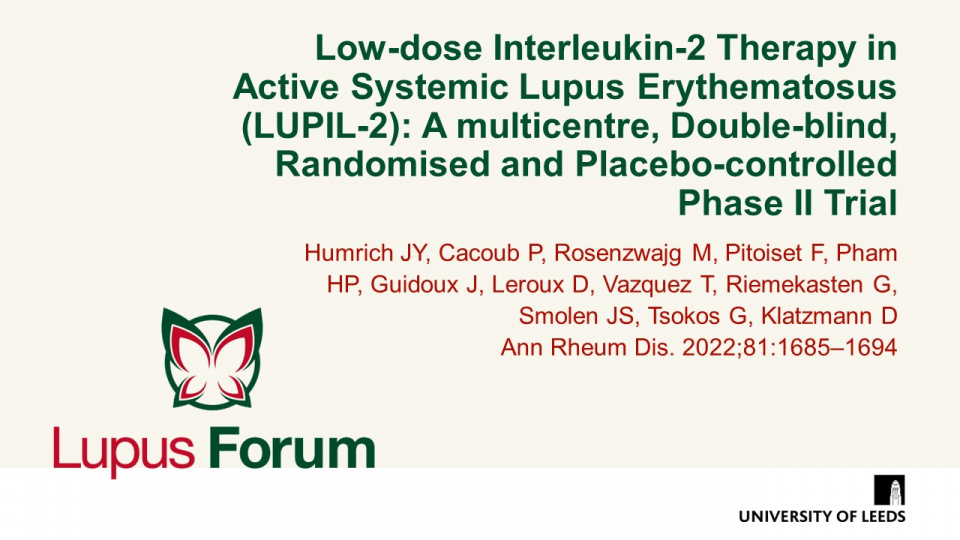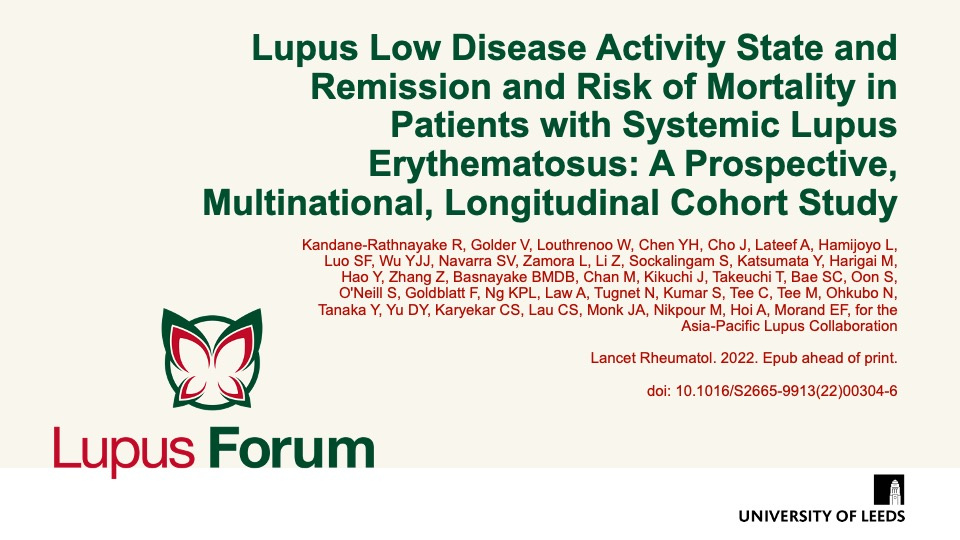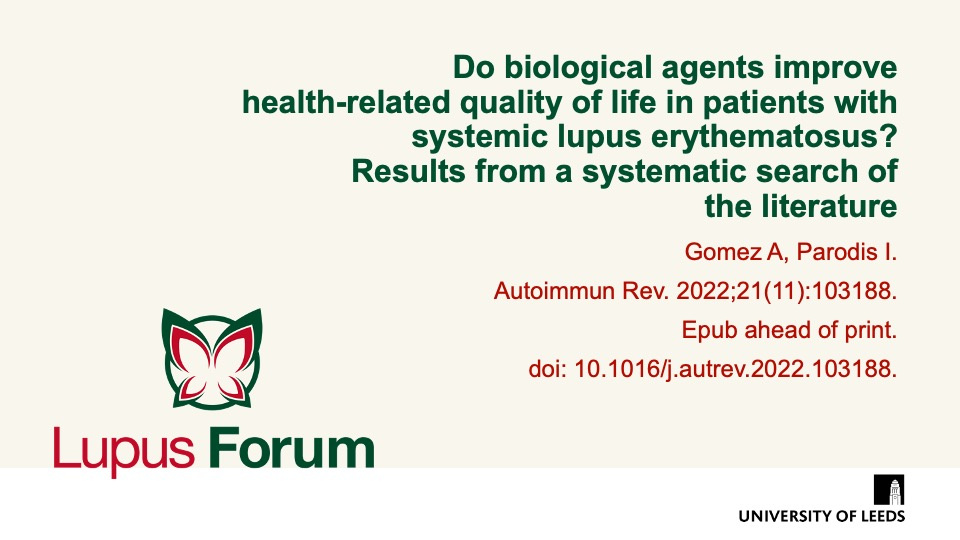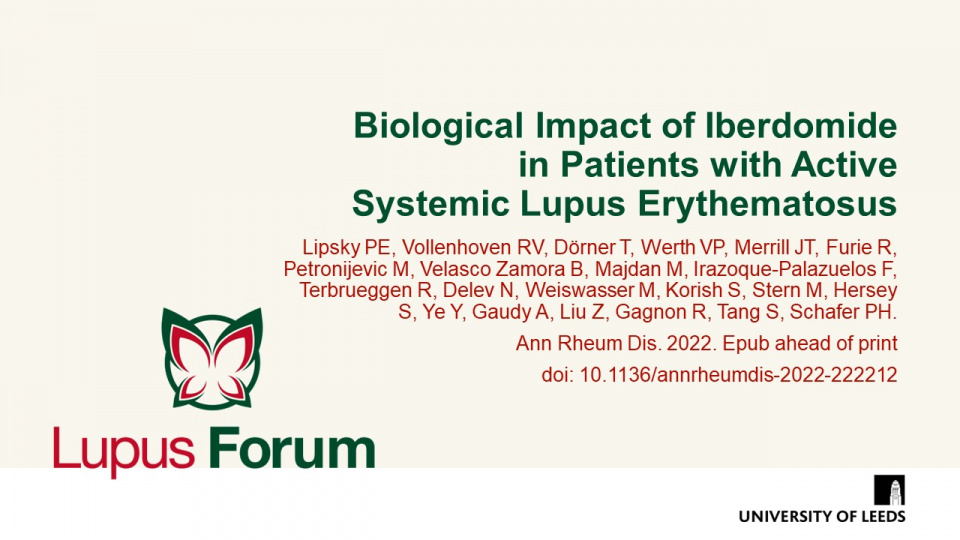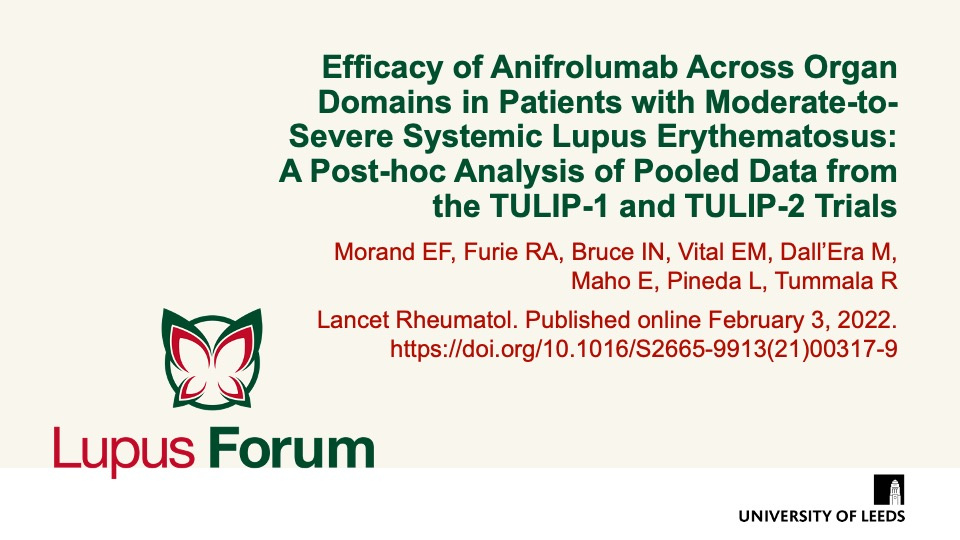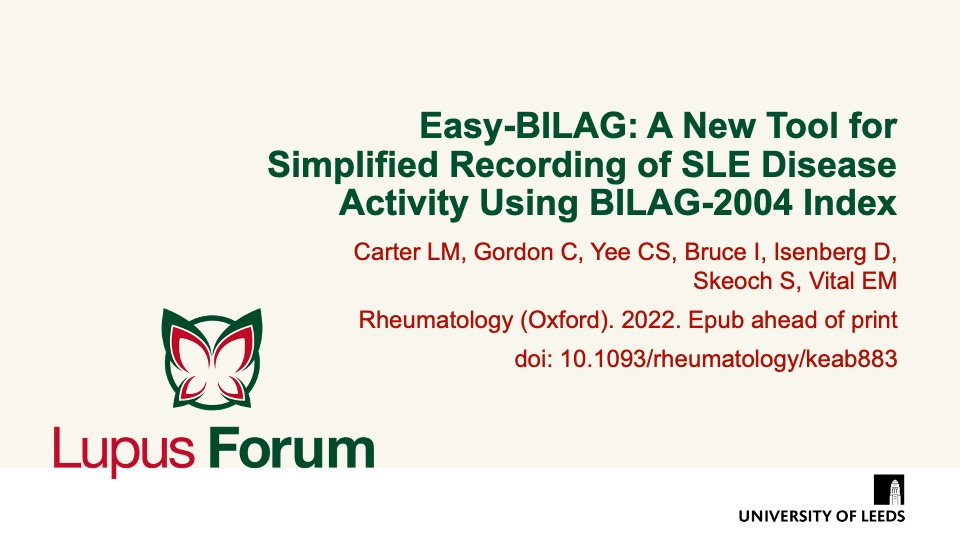Publications
Find coverage of the latest original articles on Lupus, focusing on those with data on therapeutic interventions and those that have clinical impact.
Low-dose Interleukin-2 Therapy in Active Systemic Lupus Erythematosus (LUPIL-2): A Multicentre, Double-blind, Randomised and Placebo-controlled Phase II Trial
Ann Rheum Dis. 2022;81:1685–1694
Phase II proof-of-concept trial confirms that low-dose IL-2 therapy can safely and selectively expand the Treg population, and is capable of reducing disease activity in patients with SLE.
Lupus Low Disease Activity State and Remission and Risk of Mortality in Patients with Systemic Lupus Erythematosus: A Prospective, Multinational, Longitudinal Cohort Study
Lancet Rheumatol. 2022. Epub ahead of print. doi: 10.1016/S2665-9913(22)00304-6
Lupus low disease activity state (LLDAS) significantly reduced the risk of mortality in patients with SLE.
Keywords:
Do biological agents improve health-related quality of life in patients with systemic lupus erythematosus? Results from a systematic search of the literature
Autoimmun Rev. 2022 doi: 10.1016/j.autrev.2022.103188
Gomez, et al. summarise the effects of biological therapies on SLE patients' health-related quality of life (HRQoL) in RCT and real-life settings, based on a systematic search of the literature.
Keywords:
Biological impact of iberdomide in patients with active systemic lupus erythematosus
doi: 10.1136/annrheumdis-2022-222212
Phase 2b study evaluating the pharmacodynamics and pharmacokinetics of oral iberdomide in patients with active SLE demonstrates that iberdomide significantly improves lupus disease activity and reduces hallmarks of the immunopathogenesis of SLE.
Keywords:
Efficacy of anifrolumab across organ domains in patients with moderate-to-severe systemic lupus erythematosus: a post-hoc analysis of pooled data from the TULIP-1 and TULIP-2 trials
Lancet Rheumatol. Published online February 3, 2022
Across two pivotal phase 3 trials (TULIP-1 and TULIP-2), anifrolumab treatment improved systemic lupus erythematosus (SLE) disease activity across multiple organ domains, compared with placebo.
Keywords:
Easy-BILAG: a new tool for simplified recording of SLE disease activity using BILAG-2004 index
Rheumatology (Oxford). 2022. Epub ahead of print doi: 10.1093/rheumatology/keab883
Easy-BILAG is a high-accuracy, time-efficient tool for recording BILAG-2004 disease activity in systemic lupus erythematosus (SLE).
Disease activity measurements in SLE are necessary for optimal patient care, treat-to-target approaches and clinical guidelines. However, administrative burden and potential frequency of errors with the current comprehensive disease activity instrument (BILAG-2004) limits its use in routine practice.


